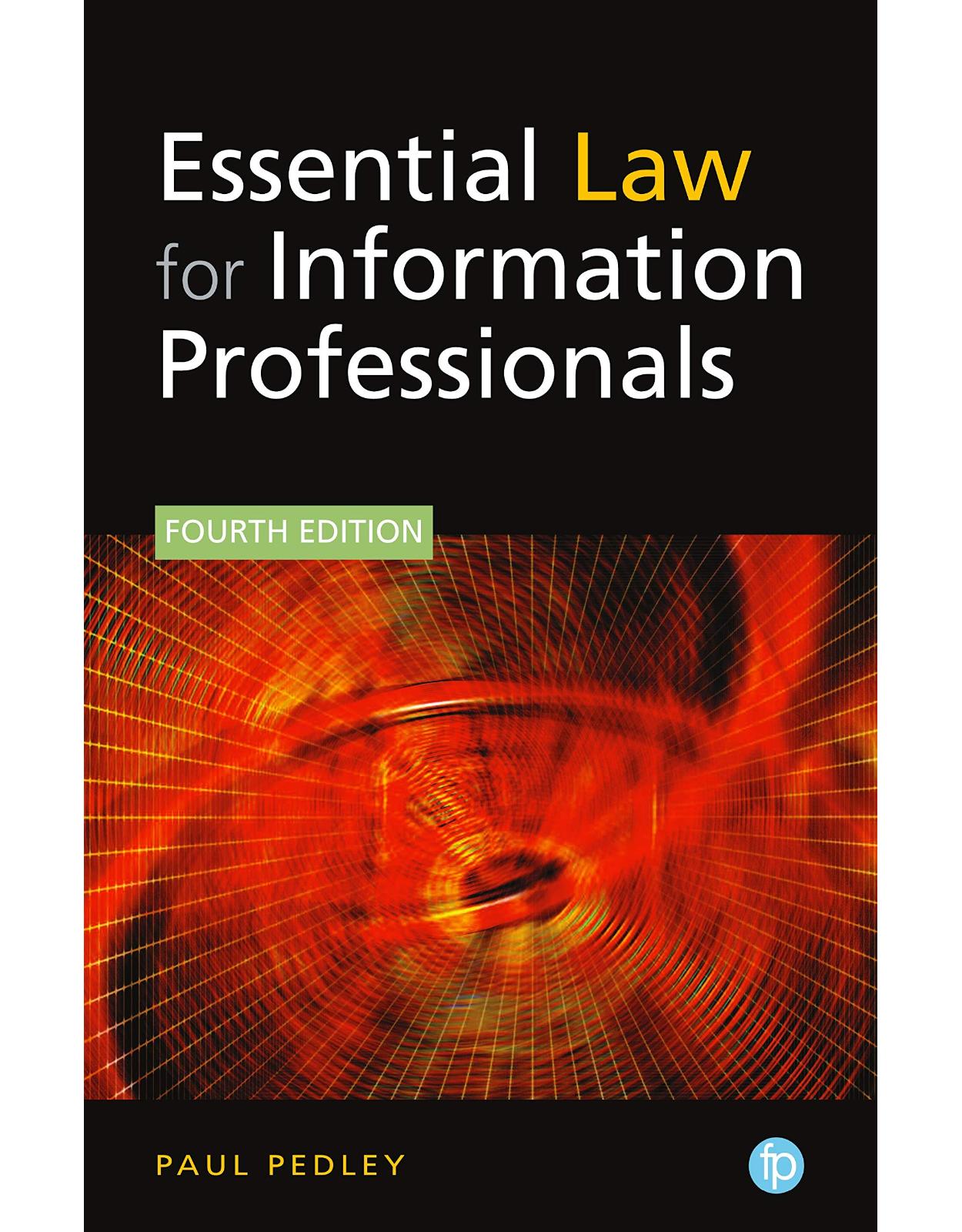
Essential Law for Information Professionals, 4th edition
Livrare gratis la comenzi peste 500 RON. Pentru celelalte comenzi livrarea este 20 RON.
Disponibilitate: La comanda in aproximativ 4-6 saptamani
Autor: Paul Pedley
Editura: Facet Publishing
Limba: Engleza
Nr. pagini: 224
Coperta: Paperback
Dimensiuni:
An aparitie: 2019
Essential Law for Information Professionals, fourth edition, provides up-to-date and easy-to-follow practical guidance on the law as it affects information management and the principles underlying practice. Using individual cases to illustrate these core principles and contextualise regulations, it cuts through the legalese to provide exactly what’s needed in an easily digestible format showing examples of how the law has worked in practice in specific legal cases. The book gives readers the tools to quickly assess legal hazards and identify solutions.
Information law is a particularly fast moving area of law. In the eight years that have passed since the best-selling third edition was published, there have been many changes to the legislation and numerous legal cases which have further developed our understanding of the law. The fourth edition fully reflects those changes, which include:
- a new chapter on library law which covers the legal framework for libraries (concentrating on legislation and soft law relevant to libraries)
- implementation of the GDPR through the Data Protection Act 2018
- a major overhaul of the copyright exceptions, and the 2018 implementation of the Marrakesh Treaty
- the Re-Use of Public Sector Information Regulations 2015 and the implications of the 2018 proposals for a new re-use directive
- extension of the public lending right scheme to e-books
- CILIP’s ethical framework.
Readership: Essential Law for Information Professionals is an essential guide for anyone working in the information professions. It is also the ideal legal textbook for students of information studies and librarianship.
Disclaimer
List of figures and tables
Table of statutes, etc.
Table of cases
Abbreviations
Glossary of terms
Preface
1 General law and background
1.1 Legal system
1.1.1 Common law system
1.1.2 Civil law system
1.2 Court system
1.2.1 England and Wales
1.2.2 Scotland
1.2.3 Northern Ireland
1.2.4 Judicial reviews
1.2.5 Tribunals
1.3 Sources of law
1.3.1 Progress of UK legislation
1.3.2 Law reports
1.3.3 Public international law
1.3.4 Websites
1.4 Legal concepts/terminology
1.4.1 Criminal law
1.4.2 Civil law
1.4.3 Tort (England, Wales, Northern Ireland)/Delict (Scotland)
1.4.4 Contract law
1.4.5 Property
1.5 Conclusions
References
2 Library law
2.1 Localism Act 2011
2.2 Public Services (Social Value) Act 2012
2.3 Sustainable Communities Act 2007 and Sustainable Communities Act 2007 (Amendment) Act 2010
2.4 Public Libraries and Museums Act 1964
2.5 Local byelaws
2.6 Literary and Scientific Institutions Act 1854
2.7 Library Offences Act 1898
2.8 Prison library service
2.9 School library service
2.10 Equality Act 2010 (section 149: Public sector equality duty)
References 28
3 Copyright
3.1 General principles
3.1.1 Copyright ownership
3.1.2 Term of protection
3.1.2.1 Unpublished works and the 2039 rule
3.2 Economic and moral rights
3.2.1 Risk management
3.3 Legislative framework
3.3.1 Berne Convention for the Protection of Literary and Artistic Works
3.3.2 Universal Copyright Convention
3.3.3 Trade-Related Aspects of Intellectual Property Rights
3.3.4 World Intellectual Property Organization Copyright Treaty
3.3.5 European directives on copyright matters
3.3.5.1 On the legal protection of computer programs
3.3.5.2 On rental and lending right
3.3.5.3 Harmonising the term of copyright protection
3.3.5.4 On the legal protection of databases
3.3.5.5 On the harmonisation of certain aspects of copyright and related rights
3.3.5.6 On the resale right for the benefit of the author of an original work of art
3.3.5.7 On the enforcement of intellectual property rights
3.3.5.8 Directive on the term of protection of copyright
and certain related rights amending the previous 2006 Directive (‘Term Directive’)
3.3.5.9 Directive on certain permitted uses of orphan works
3.3.5.10 Directive on collective management of copyright and related rights and multi-territorial licensing of
rights in musical works for online use in the internal market
3.3.5.11 Directive on certain permitted uses of certain works and other subject matter protected by copyright and related rights for the benefit of persons who are blind, visually impaired or otherwise print-disabled
3.3.6 European Regulations on copyright matters
3.3.6.1 Regulation on the cross-border exchange between the Union and third countries of accessible format copies of certain works and other subject matter protected by copyright and related rights for the benefit of persons who are blind, visually impaired or otherwise print-disabled
3.3.6.2 Regulation on cross-border portability of online content services in the internal market
The Intellectual Property (Copyright and Related Rights) (Amendment) (EU Exit) Regulations 2019
3.3.7 UK legislation
3.3.8 Supplementary case law
3.4 Acts permitted in relation to copyright works
3.4.1 Fair dealing
3.4.1.1 What is substantial?
3.4.2 Non-commercial research
3.4.3 Private study
3.4.4 Illustration for instruction
3.4.5 Quotation
3.4.6 Criticism and review
3.4.7 News reporting
3.4.8 Caricature, parody and pastiche
3.4.9 Text and data mining for non-commercial research
3.4.10 The library provisions in the CDPA
3.4.10.1 Copying by librarians on behalf of their users
3.4.10.2 Libraries and educational establishments making
works available through dedicated terminals
3.5 Licensing
3.5.1 Copyright Licensing Agency
3.5.2 NLA Media Access
3.5.3 Design Artists Copyright Society
3.5.4 Ordnance Survey
3.5.5 The National Archives
3.5.6 Creative Commons
3.6 Digital copyright
3.6.1 Internet
3.6.2 Right of communication to the public
3.6.3 Hyperlinking and deep linking
3.6.4 Database regulations
3.6.5 Archiving and preservation of digital content
3.6.6 Licensing of electronic resources
3.6.7 Digital rights management systems
3.6.8 Digital signatures and copyright declaration forms
3.7 Copyright clearance
3.7.1 Databases of rights owners
3.7.2 Orphan works
3.7.2.1 Orphan works licences
3.8 Open access
3.8.1 Further information
3.9 Ethical and professional issues and conflicts
3.10 Further information
References
4 Legal deposit
4.1 Introduction
4.2 General principles
4.2.1 Print material
4.2.2 Non-print material
4.3 Enforcement
4.4 Copyright and use of legal deposit material
4.5 Online defamation
4.6 The future
4.7 Further information
References
5 Breach of confidence
5.1 General principles
5.2 Obligation of confidence and the Freedom of Information Act
5.3 Remedies
5.4 Trade secrets
5.5 Case law on breach of confidence
6 Contracts and licensing agreements
6.1 General principle
6.2 Negotiating licences
6.2.1 Factors that can make or break a deal
6.3 Consortia and standard licences
6.4 Technology solutions
6.5 Use of passwords for licensed products
6.5.1 Usage data
6.6 Further information
References
7 Data protection
7.1 Introduction
7.2 General principles
7.2.1 The GDPR and the DPA 2018 are constantly evolving
7.2.2 Related legislation
7.3 The six data protection principles
7.3.1 First principle
7.3.2 Second principle
7.3.3 Third principle
7.3.4 Fourth principle
7.3.5 Fifth principle
7.3.6 Sixth principle
7.4 Accountability
7.4.1 Documentation requirements
7.4.2 Codes of conduct
7.4.3 Certification
7.5 Processing of personal data
7.5.1 Legal bases for processing
7.5.2 Processing of special categories (sensitive personal data)
7.5.3 Consent
7.5.4 Transfers of personal data to a third country or an international organisation
7.6 Exemptions
7.7 Privacy notices
7.8 Register of fee payers
7.9 Rights of the data subject
7.9.1 Compensation
7.9.2 Credit reference agencies
7.10 Data breaches
7.10.1 Causes of data breaches
7.11 Data protection impact assessments
7.12 Fines and prosecutions
7.12.1 Prosecutions
7.13 Data protection issues for libraries
7.13.1 E-books – privacy concerns
7.13.2 Electoral roll information in libraries
7.13.3 Radio Frequency Identification
7.13.4 Outsourcing
7.14 Data protection standards
7.15 How to protect your information
7.16 Identity theft
7.17 Further information
References
8 Privacy
8.1 General principles
8.2 Obligation of confidence versus breach of privacy
8.3 Codes of practice
8.4 Injunctions
8.5 Privacy and libraries
8.6 Case law
8.7 Further information
References
9 Freedom of information
9.1 General principles of freedom of information
9.2 The Freedom of Information Act 2000 (FOIA)
9.2.1 Local authorities
9.3 Publication schemes
9.4 Datasets
9.5 Copyright implications of the FOIA
9.6 Freedom of information and library and information professionals
9.7 Freedom of information rights and request procedures
9.8 Exemptions and appeals
9.9 Enforcement
9.10 The Environmental Information Regulations 2004 (EIR)
9.10.1 What is environmental information?
9.11 Freedom of information in Scotland
9.12 Freedom of information and data protection
9.12.1 Fees and charges
9.12.2 The time limit for responding to requests
9.12.3 The exemptions
9.13 European Union documents
9.14 Further information and keeping up to date
9.14.1 Organisations
9.14.2 Journals
9.14.3 News feeds
References
10 Human rights
10.1 General principles
10.1.1 Human Rights Act 1998
10.1.2 Fundamental Rights Agency
10.2 Guiding principles for library and information professionals
10.3 Human rights and data protection
10.4 Human rights and copyright
10.5 Human rights and freedom of expression
10.6 Further information
References
11 Re-use of public sector information
11.1 Background
11.2 General principles
11.3 Public task
11.3.1 The ‘public task’ of public sector libraries
11.4 UK government licensing framework
11.4.1 UK Open Government Licence
11.4.2 The non-commercial government licence
11.4.3 The charged licence
11.5 Right to data
11.6 Charging
11.6.1 Public/private partnerships and exclusivity deals
11.7 Complaints procedure
11.8 New Open Data and PSI Directive
11.9 Further information
11.9.1 Organisations
11.9.2 Publications
References
12 Defamation
12.1 Introduction
12.2 General principles
12.3 Slander
12.4 Libel
12.5 Defences to libel
12.5.1 Truth
12.5.2 Honest opinion (previously known as fair comment)
12.5.3 Publication on a matter of public interest (Defamation Act 2013 section 4)
12.5.4 Operators of websites who didn’t post the statement on the website (Defamation Act 2013 section 5)
12.5.5 Peer-reviewed statements in scientific or academic journals (Defamation Act 2013 section 6)
12.5.6 Privilege (Defamation Act 2013 section 7)
12.5.7 The offer to make amends
12.6 Remedies
12.6.1 Civil action for damages
12.6.2 Costs
12.6.3 An injunction/interdict to prevent repetition
12.7 Defamation and the internet
12.7.1 The liability of internet service providers for other people’s material
12.7.2 The application of the limitation period to online archives and the introduction of the single publication rule
12.7.3 Exposure of internet publishers to liability in other jurisdictions
12.7.4 The risk of prosecution for contempt of court
12.7.5 Social networking sites
12.7.6 E-mail libel
12.8 Checklist
References
Notes
13 Professional liability
13.1 General principles
13.2 Contract
13.3 Tort (delict in Scotland)
13.4 Liability and electronic information
13.5 Liability for copyright infringement
13.6 Risk management
13.7 Indemnity and insurance
References
14 Cybersecurity and cybercrime
14.1 Background
14.2 Cybersecurity and cyber essentials
14.3 Council of Europe Convention on Cybercrime
14.4 The Computer Misuse Act 1990
14.5 The Network and Information Systems Regulations
14.6 Hacking
14.7 Viruses, worms and Trojans
14.8 Intellectual property infringement
14.8.1 Plagiarism
14.8.2 Software piracy
14.8.3 Making illegal downloads of music files
14.8.4 Other examples of copyright abuse
14.9 Pornography
14.10 Fraud
14.10.1 Phishing
14.10.2 Pharming
14.11 Denial of service attacks
14.12 Acceptable use policies
14.13 Communications Act 2003
References
15 Disability discrimination
15.1 General principles
15.2 Copyright and the disability exceptions
15.3 The Right to Read
15.4 Website accessibility
15.5 Further information
16 Other legal issues relevant to librarians
16.1 Introduction
16.2 Police, surveillance and libraries
16.3 Cloud computing
16.3.1 Escrow agreements
16.3.2 Data protection issues
16.3.3 Ownership of the data
16.4 Stocking extremist/controversial literature
16.5 Censorship
16.6 Theft or mutilation of rare books
16.6.1 Examples of theft by library users
16.6.2 Examples of theft by library staff
16.7 Lending of audio books and e-books by public libraries
16.8 Further information
References
Appendices
Appendix 1 Brexit and the orphan works exception
Appendix 2 CILIP's ethical framework
Index
Paul Pedley MA MLib FCLIP has been following developments in UK information law for over twenty years. He has been a member of the Libraries and Copyright Alliance since 1998, and regularly trains, lectures and speaks on copyright and other areas of information law. He is the author of a number of books published by Facet Publishing including the E-copyright Handbook, Copyright Compliance: Practical steps to stay within the law and Essential Law for Information Professionals.
| An aparitie | 2019 |
| Autor | Paul Pedley |
| Editura | Facet Publishing |
| Format | Paperback |
| ISBN | 9781783304356 |
| Limba | Engleza |
| Nr pag | 224 |

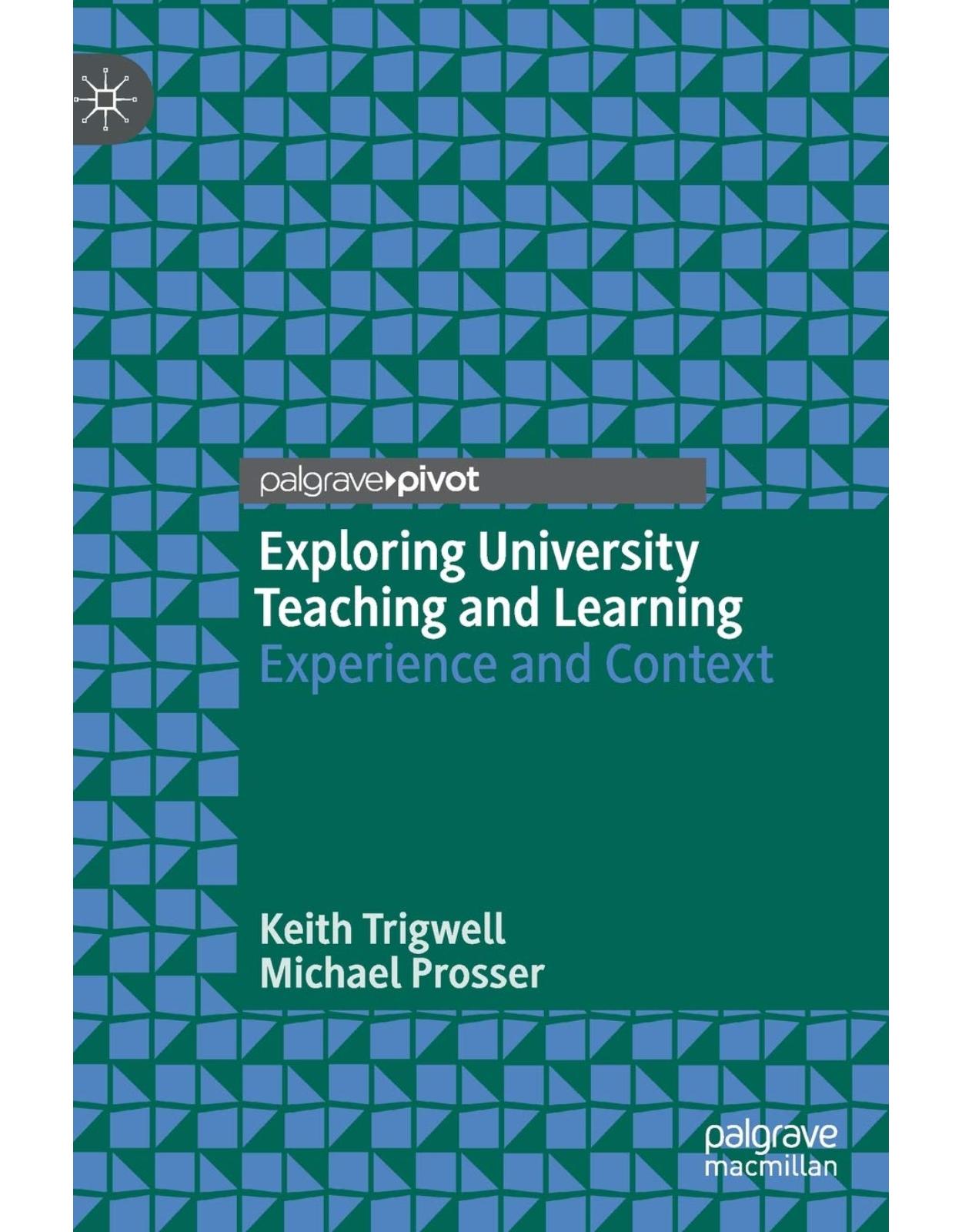

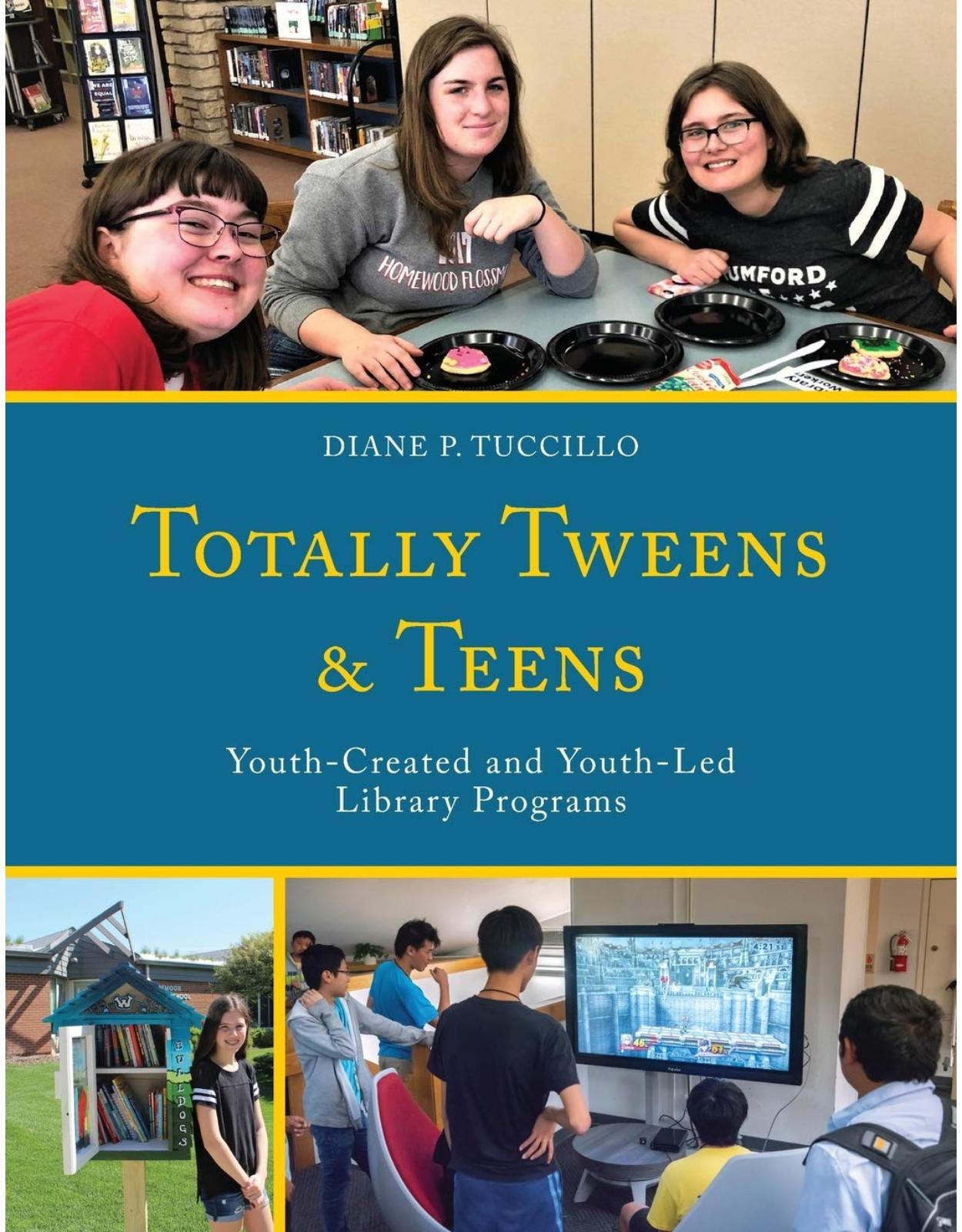
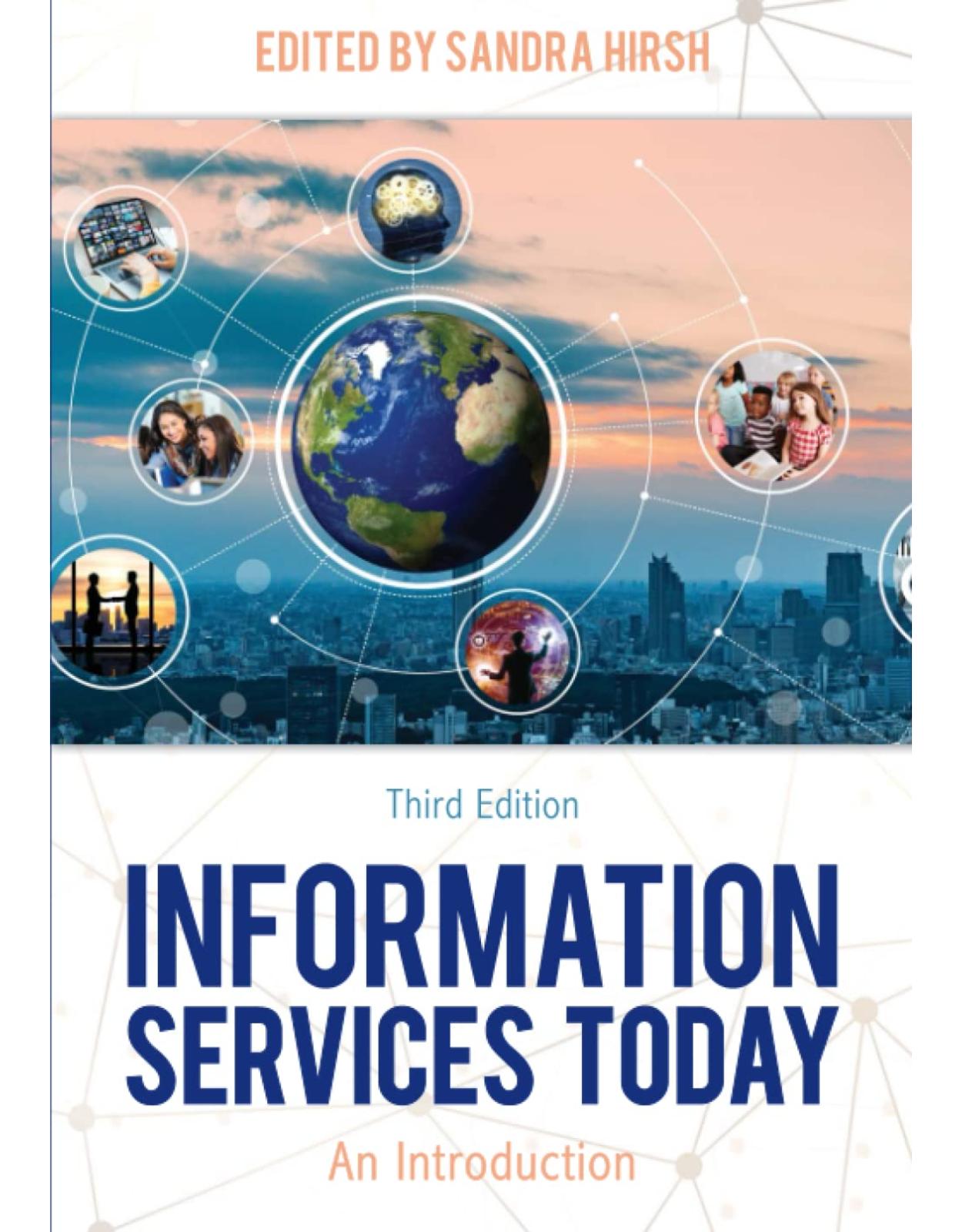
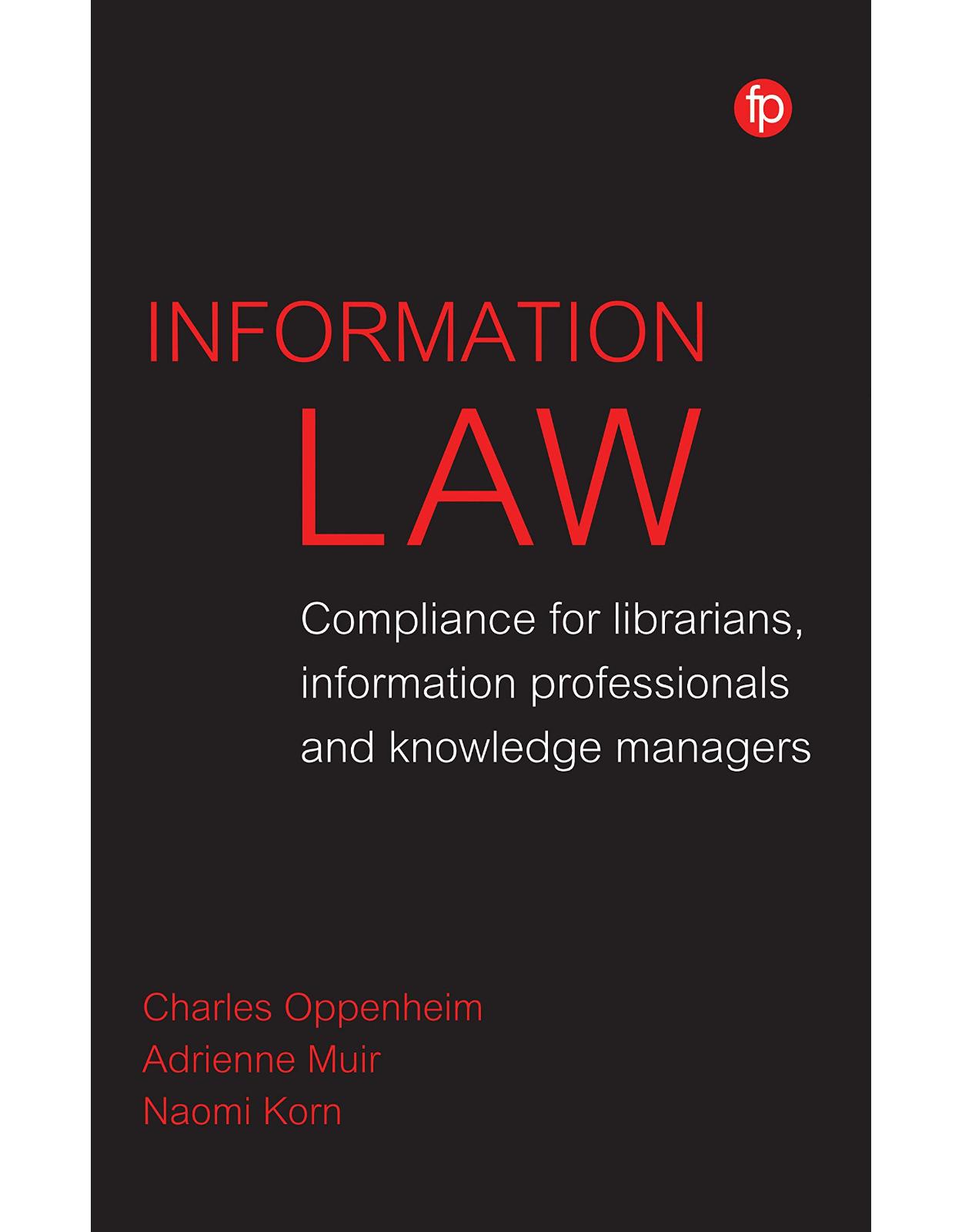

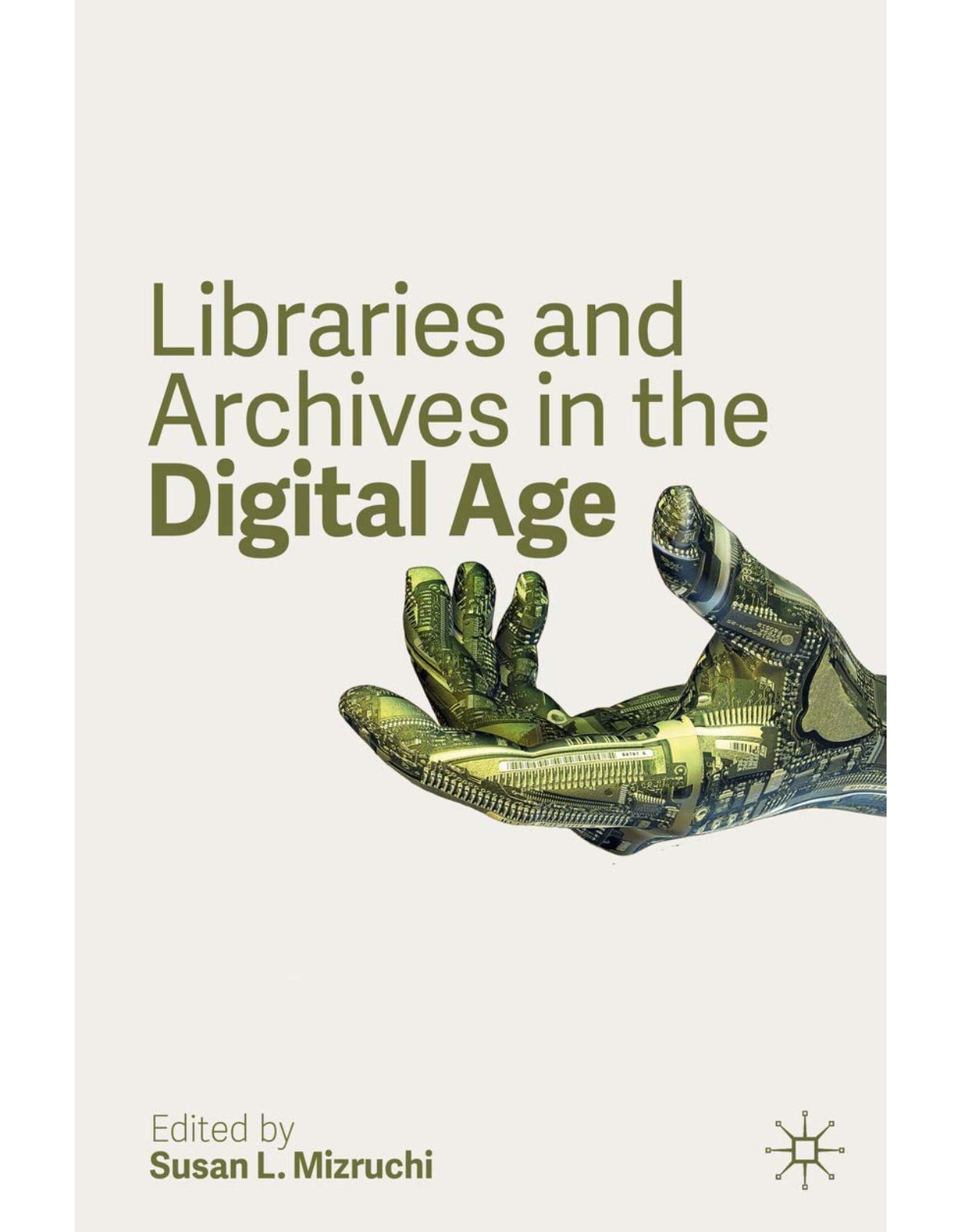
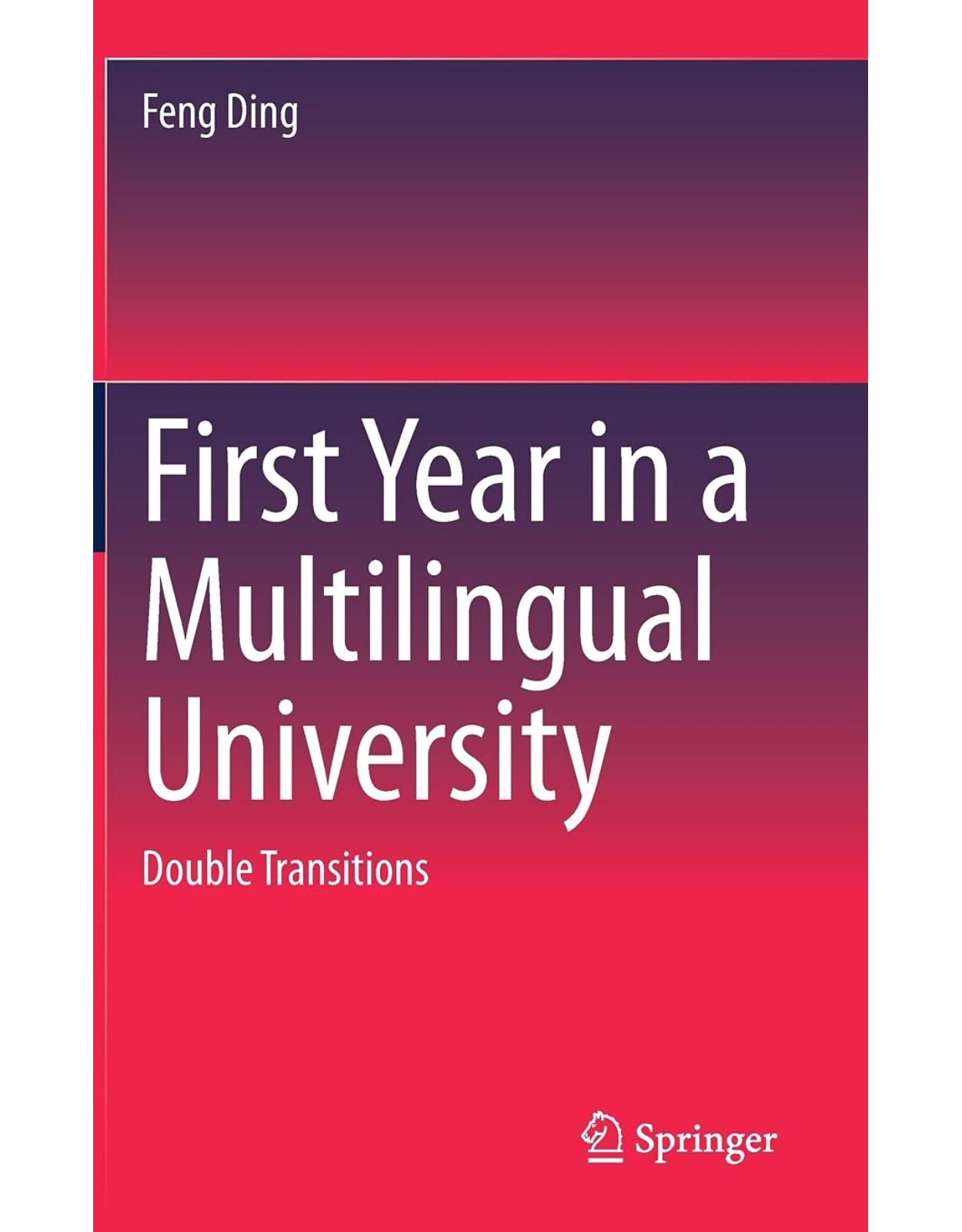
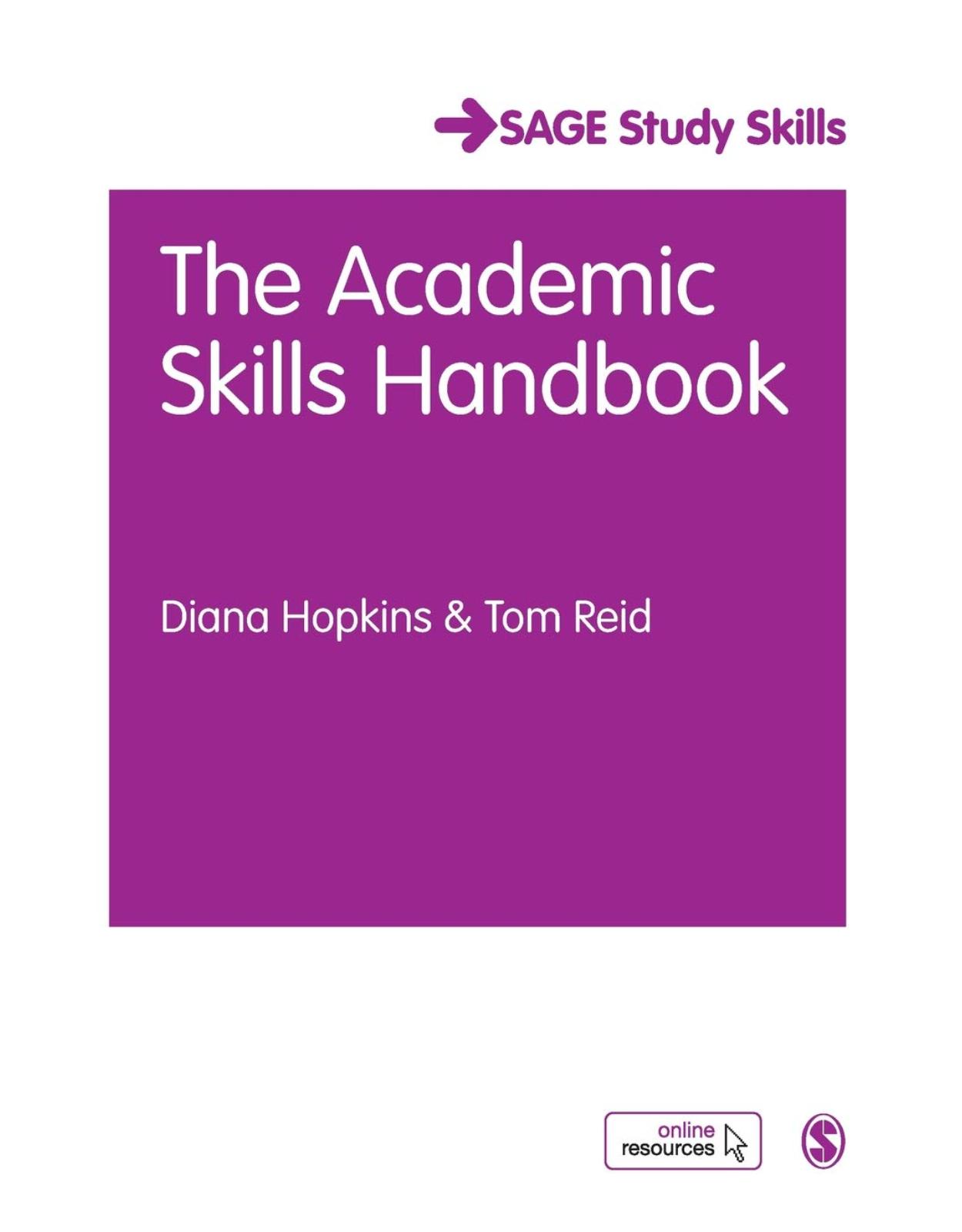
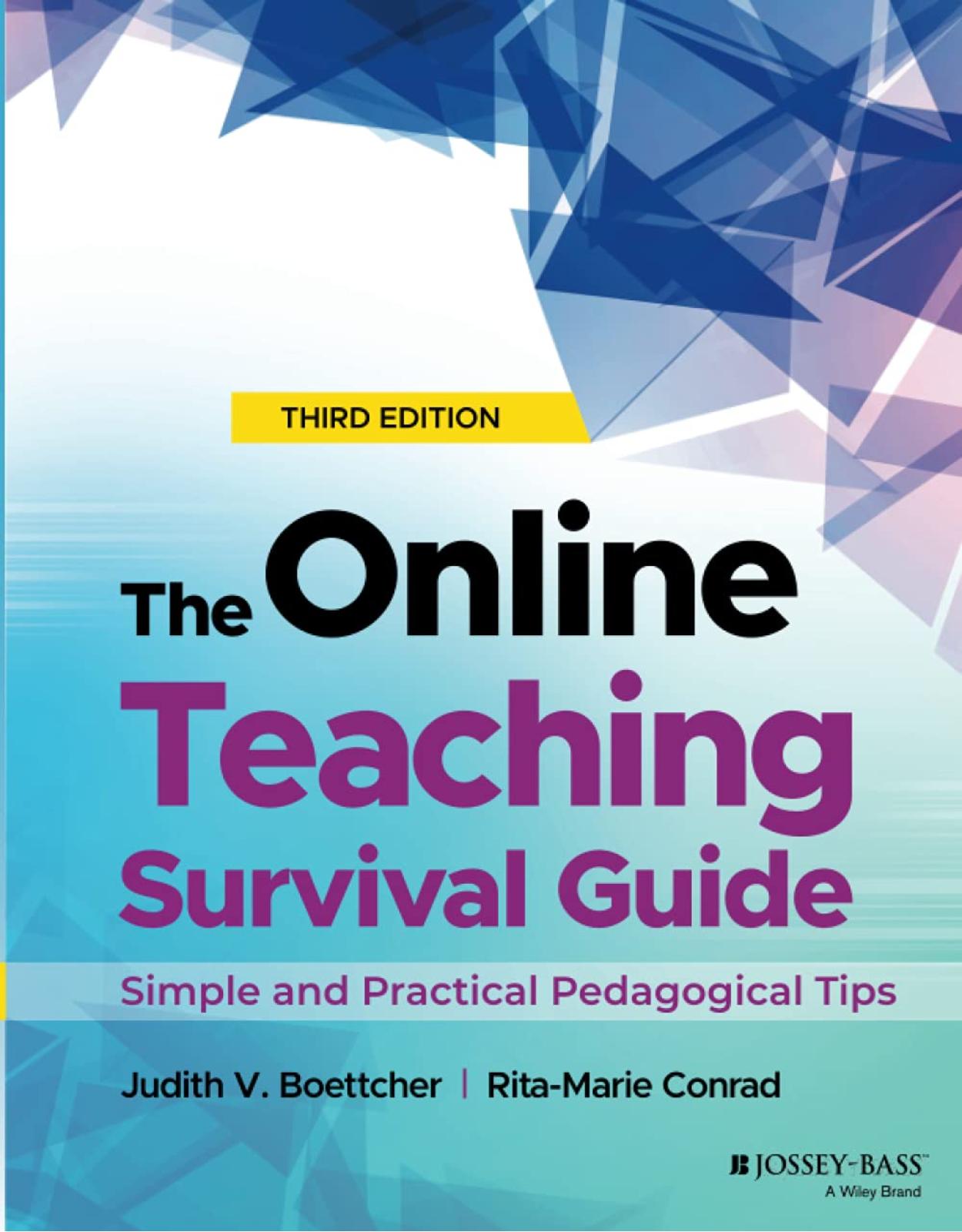
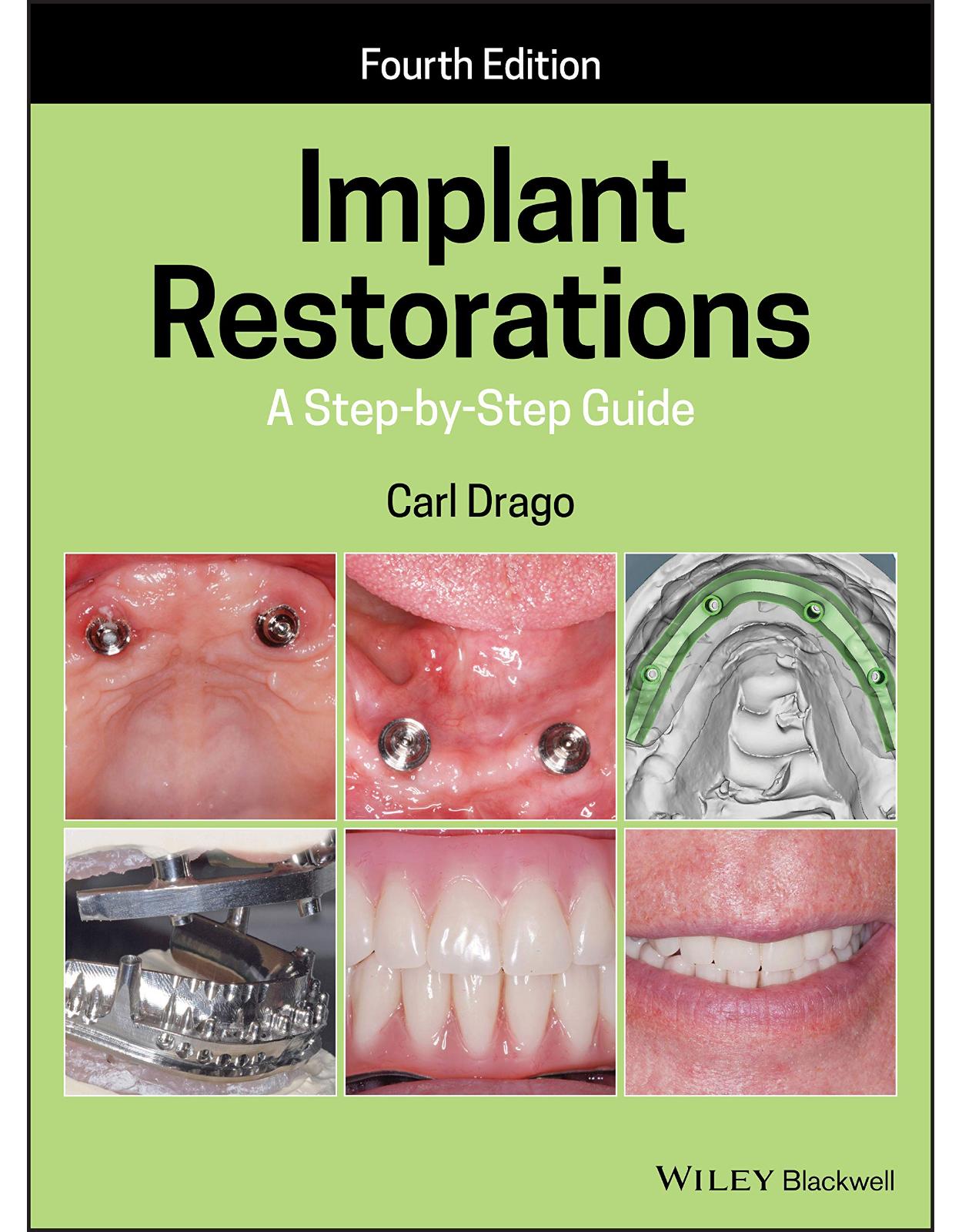
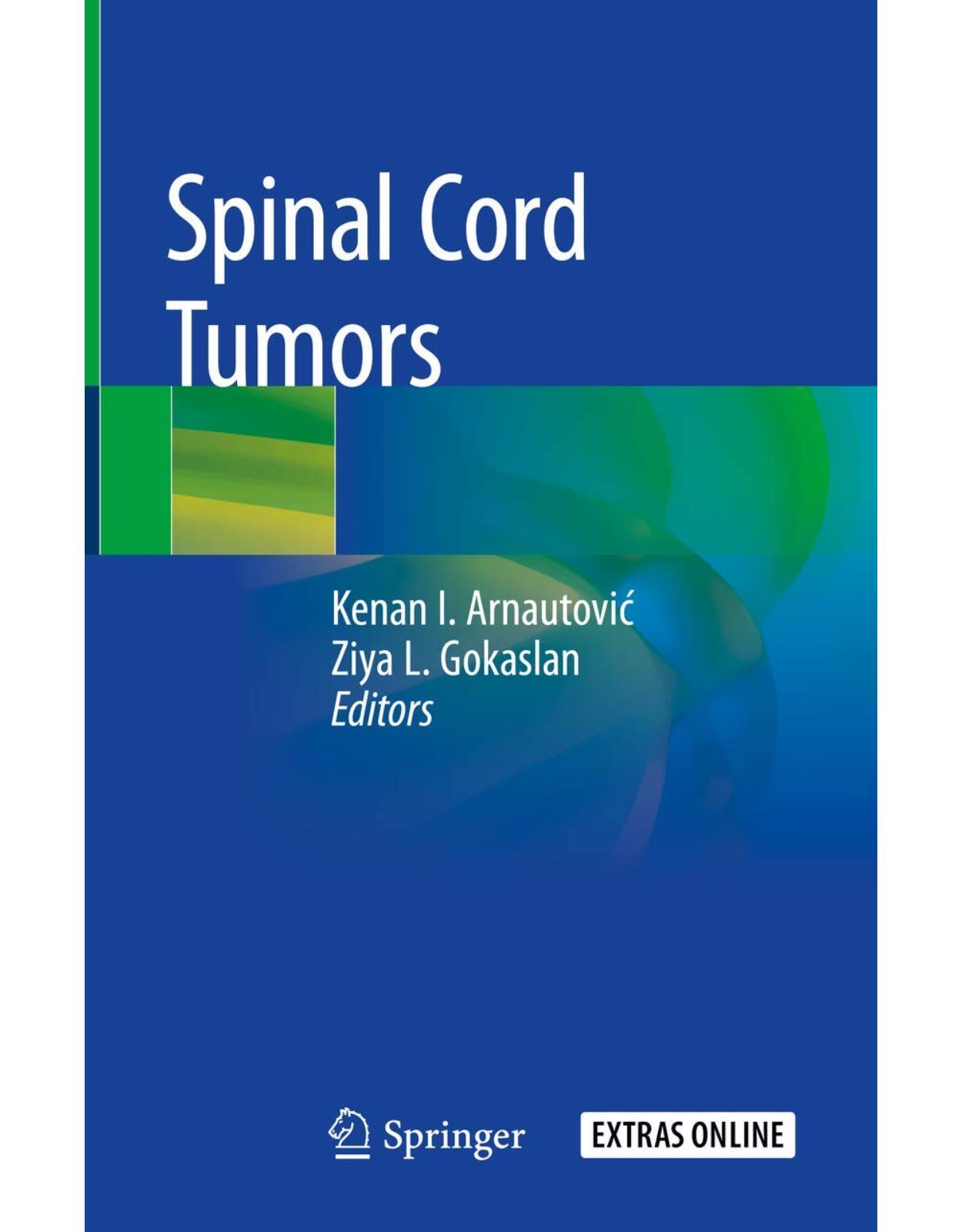
Clientii ebookshop.ro nu au adaugat inca opinii pentru acest produs. Fii primul care adauga o parere, folosind formularul de mai jos.